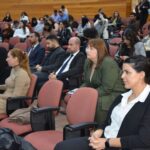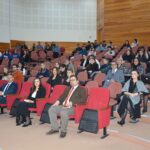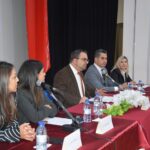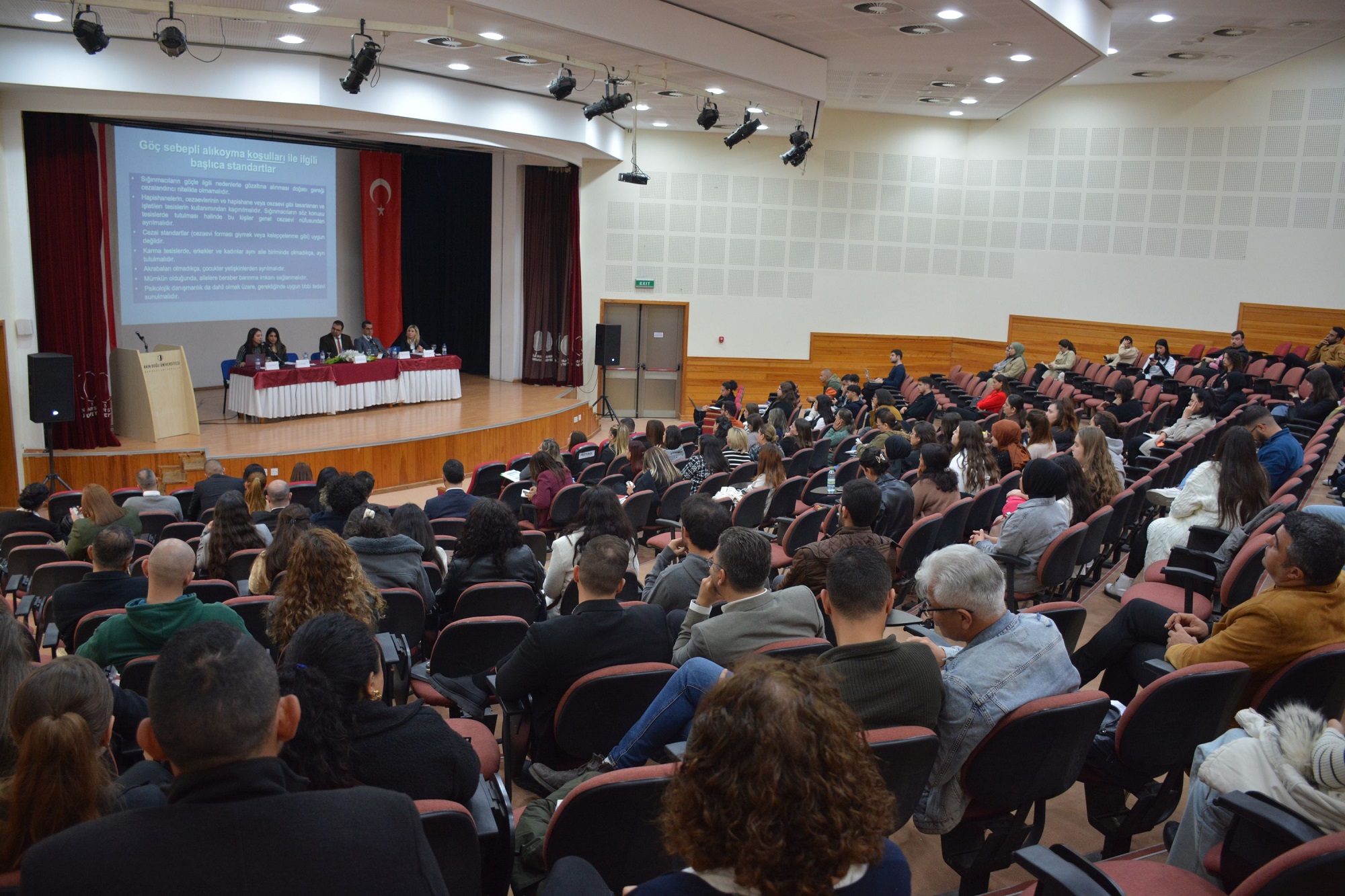
The “Human Rights Symposium” was held in cooperation with Near East University and the Turkish Cypriot Bar Association, within the scope of the 75th anniversary events of the adoption of the Universal Declaration of Human Rights by the United Nations General Assembly on December 10, 1948.
In the symposium held at the Near East University Grand Library and consisting of 4 sessions, human rights were discussed in many aspects. Each session of the symposium ended with a question and answer session.
In the symposium, where it was emphasized that all people, without any discrimination, have the right to equal, free and dignified life simply because they are human, the history and current practices of the Universal Wisdom of Human Rights were discussed. Members of the press also showed great interest in the symposium, which was attended by many lawyers who are members of the Turkish Cypriot Bar Association, as well as members of parliament, academicians and students.
The symposium started with the opening speeches of the former Supreme Court Judge and Ombudsman Emine Dizdarlı and Near East University Faculty of Law Deputy Dean Assoc. Prof. Dr. Yeter Tabur Lawyer Hasan Esendağlı, President of the Turkish Cypriot Bar Association, who was unable to attend the symposium because he was abroad, addressed the participants with a video message.
18 papers were presented in four sessions
The first session of the symposium, where 18 papers were presented in four sessions, was chaired by Near East Institute Director Assoc. Prof. Dr. Mustafa Çıraklı. In the first session, Lawyers Cemre İpciler and Lawyer Cansu N. Nazlı, Near East University Faculty of Law Lecturer Dr. Ayten Erçoban, Eastern Mediterranean University Faculty of Law Lecturer Assist. Prof. Dr. Can Azer evaluated the current situation of the Turkish Republic of Northern Cyprus in terms of human rights and discussed the issues of freedom of expression, women’s rights, children’s rights and data security.
The Israel-Palestine War was evaluated in the context of international law
In the second session chaired by Near East University Faculty of Economics and Administrative Sciences Head of Political Science Department Prof. Dr. Nur Köprülü, Near East University Faculty of Law faculty members Assoc. Prof. Dr. Nabi Berkut, Assist Prof. Dr. Perçem Arman, Assist. Prof. Dr. Tutku Tuğyan and Assist. Prof. Dr. Özde Bayraktar spoke on the Israeli-Palestinian War and evaluated the war in the context of international law.
In the 3rd session, chaired by Dean of the European University of Lefke, Faculty of Law, Prof. Dr. Nuri Erişgin, the subjects of labor rights, right to education, human trafficking and international anarchy were discussed by Near East University Faculty of Law Research Assistant Fikrican Kayıkçı, Lawyer Laden Asilzade, Lawyer Sevilay Yıldırımer and Cyprus International University Faculty of Law Faculty Member Assist. Prof. Dr. Erdem Ertürk.
In the fourth and last session chaired by the Former President of the Turkish Cypriot Human Rights Foundation, Lawyer Emine Çolak, Lawyer Aslı Murat, Lawyer Öncel Polili, Eastern Mediterranean University Faculty of Law Lecturer Assist. Prof. Dr. Nurcan Gündüz, Near East University Faculty of Law Lecturer Assist. Prof. Dr. Onur Ciddi and Near East University Faculty of Law Lecturer Assist. Prof. Dr. Görkem Göktuna discussed issues such as torture, disabled rights, legal aid mechanism, taxation and the right to notification.
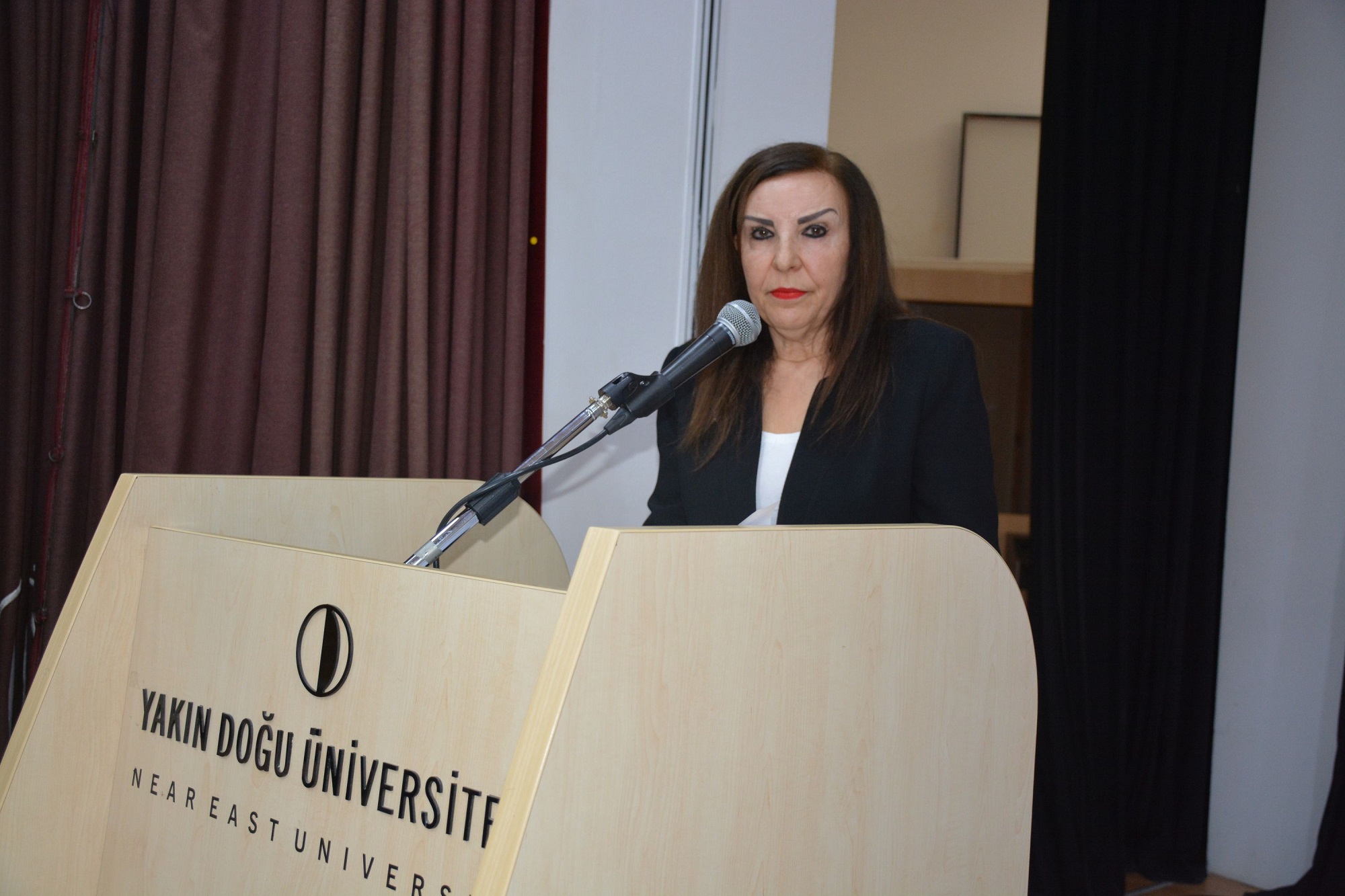
Emine Dizdarlı: “I think we still have a long way to go.”
Former Supreme Court Judge and Ombudsman Emine Dizdarlı, who took the first session at the symposium, said that every human being is born equal and is endowed with some rights from the moment of birth, and stated that the intention to protect human honor and dignity forms the basis of human rights. Reminding that the scope of human rights varies according to political, ideological, philosophical attitudes and preferences, Dizdarlı emphasized that this issue is still being discussed and said, “There is no objective criterion as to which rights will or will not be protected first. Thus, some authorities claim that the Convention on Human Rights cannot provide or continue to provide the same protection indefinitely.”
Dizdarlı also stated that the perception that fundamental rights and freedoms in democratic countries are unlimited at all times and under all circumstances is wrong, and said, “Every freedom has limits arising from its own structure or legal structure.” Dizdarlı, who also evaluated the situation in the country and said that the European Convention on Human Rights is a part of the domestic law of the TRNC, said: “Unfortunately, we have not reached the stages we should have reached so far. I think we still have a long way to go.”
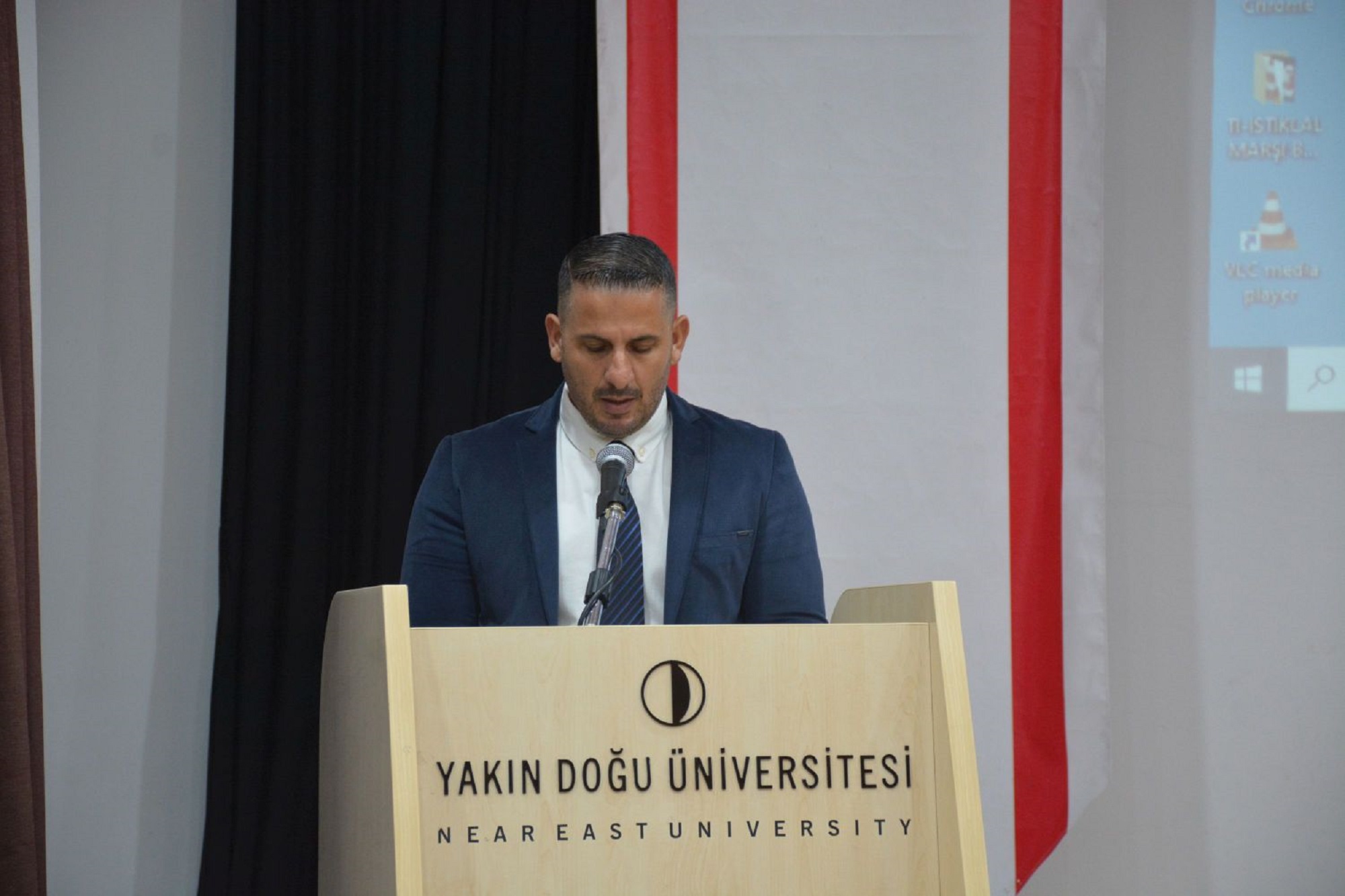
Assoc. Prof. Dr. Yeter Tabur: “Today, the protection and development of human rights is no longer an internal problem of countries, it has become a common problem of all humanity.”
Near East University Faculty of Law Deputy Dean Assoc. Prof. Dr. Yeter Tabur in his opening speech, emphasized that they carry out joint projects and events with public institutions, organizations and non-governmental organizations in order to contribute to the creation of human rights culture, understanding, protection and development of rights. Referring to the history of the Universal Declaration of Human Rights and the declaration’s content reflecting the principles of human rights, Yeter Tabur stated that all people, without any discrimination, are simply human and reminded that everybody has the right to an equal, free and dignified life. Noting that there have been positive developments in the formation of mechanisms for the protection of human rights, especially in the last 50-60 years, Assoc. Prof. Dr. Tabur said, “Today, the protection and development of human rights is no longer an internal problem of countries, it has become a common problem of all humanity.”
Assoc. Prof. Dr. Tabur noted that responsibilities for the protection and development of human rights belong primarily to states, but that it requires the cooperation of all institutions and individuals, from the media to non-governmental organizations. Yeter Tabur said, “It is of great importance that individuals, especially non-governmental organizations and the media, have human rights awareness and the sense of responsibility necessary for the full adoption and implementation of human rights.”
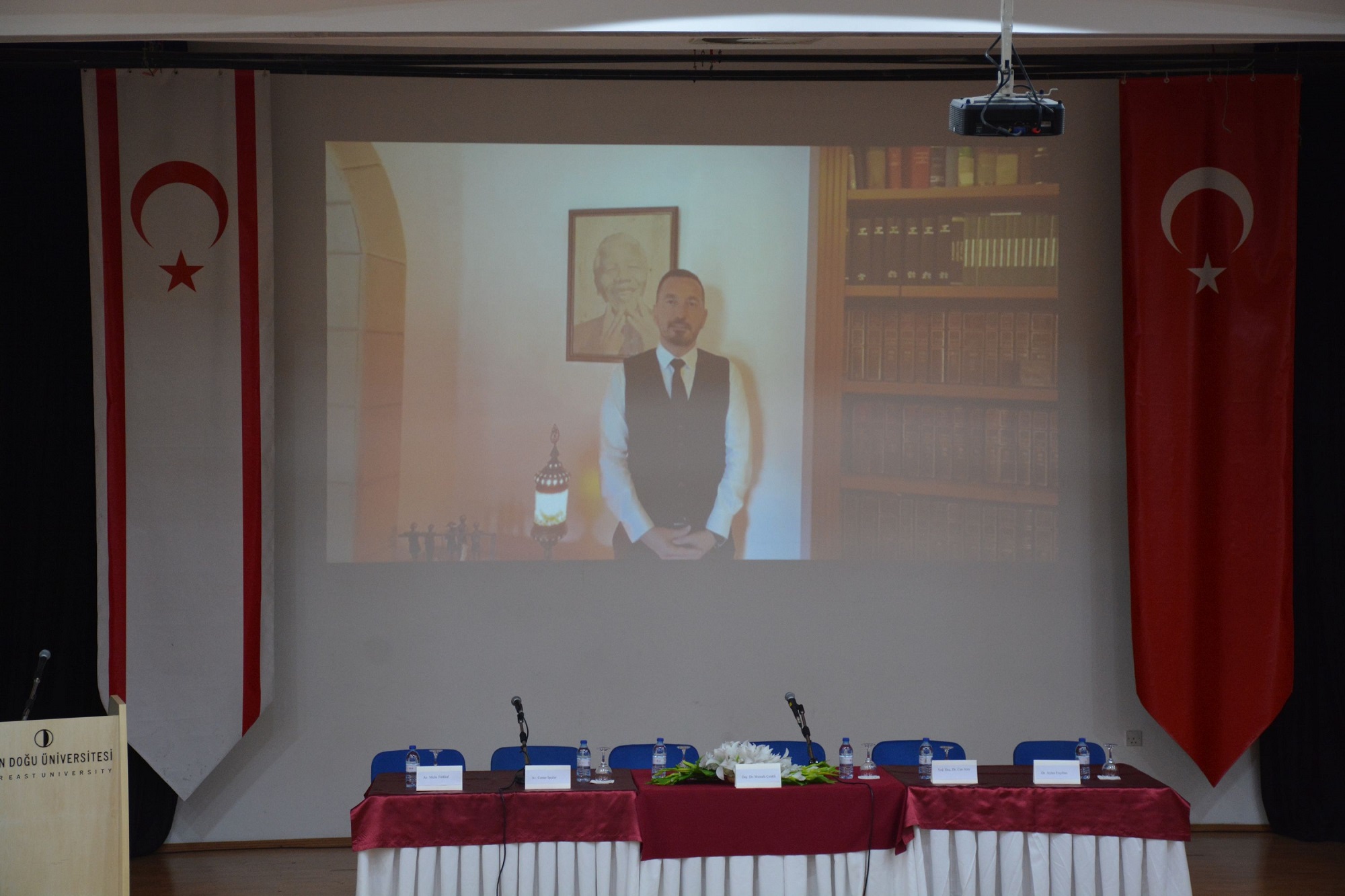
Hasan Esendağlı: “We are going through processes where there is a regression in terms of human rights.”
Esendağlı, President of the Turkish Cypriot Bar Association, who attended the symposium via video recording as he was abroad, said, “We are going through periods of regression and developments that are not encouraging in terms of human rights, both in the world and in our region.” Esendağlı also expressed his hope that the symposium would shed light on the bad atmosphere we are in.
